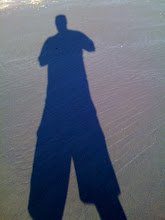Do We Live in a Meaningful Universe?
What's Your Reaction:diggfacebook Twitter stumble reddit del.ico.us Inspiring
Enlightening
Crazy
Scary
Helpful
Amazing
Innovative
Important
Read More: Larry Dossey , Spiritual Life , Spiritual Living , Spiritual Path , Spiritual Practice , Spirituality , Spirituality Science , Living News
63
views76Get Living Alerts
Share Comments 76 Science educators often skim off the top, as it were. They regale young minds with the marvels of science while remaining silent about the problems to which it has contributed.
When I was in grade school as a member of a different younger generation, we had routine drills in which we took cover under our desks. This was to prepare us to act quickly in case the Russians decided to nuke our playground. No one ever explained how this pathetic maneuver would save us, but it seemed to make the teachers feel better. Today's youngsters are treated to a different menu of menaces. Their nuclear hazard is more likely to come in the form of a dirty nuclear device detonated by a terrorist instead of from a Russian plane or missile. Then there is global warming, nuclear waste, environmental degradation, polluted air, water and soil. There are acidified oceans, melting polar ice, oceanic dead zones, dying coral reefs, vanishing species, on and on, all of which are due in some measure to the downside of science and technology. The mantra that only science can save us from these perils rings hollow to many youngsters, since it was largely science and technology that bequeathed them in the first place. As anthropologist and educator Loren Eiseley put it,
We have lived to see the technological progress that was hailed in one age as the savior of man become the horror of the next. We have observed that the same able and energetic minds which built lights, steamships and telephones turn with equal facility to the creation of what euphemistically is termed the "ultimate weapon." It is in this reversal that the modern age comes off so badly.
The usual defense from the science community toward views such as Eiseley's is that it is technology, not science itself, that has made a mess of things. This is no doubt true to a certain extent. But scientists sometimes take risks in their research that appear breathtakingly irresponsible and reckless, which they usually justify in the name of pure or basic science. Some of these risks are so obvious they draw fire from scientists themselves. Consider a recent editorial in the respected British publication New Scientist titled "The Scary Business of Tinkering with Life":
"By tinkering with the cell's natural machinery ...[the research team] has found a way of making proteins with entirely new properties, opening up a future of exotic designer organisms.... This is a fundamental advance that could lead to new drugs, materials and energy sources. But tampering with life's operating system will inevitably raise safety concerns -- and it's true that we have no way of predicting the fallout of this work. Synthetic biologists need to confront openly and honestly public fears that they are "playing God [emphasis added]."
Science boosters should wake up. Kids aren't dumb. To borrow novelist Ernest Hemingway's term, they have excellent "built-in bullshit detectors." And nothing triggers the warning more than when those in charge present only one side of a story.
Must Science Be Depressing?
Why would anyone who is psychologically healthy pick a career that demands a view of the world that is morbid, pessimistic and depressing? That's precisely the worldview advocated by some of the most outstanding scientists of our day. This can be a turnoff to any optimistic, questing, curious, intelligent kid who stumbles onto it. Perhaps that is why the advocates of science education almost never acknowledge this prevailing view when promoting the wonders of science to youngsters.
Typical of the gloomy perspective is that of Nobel physicist Steven Weinberg in his 1977 book The First Three Minutes. In a now-famous passage, he writes,
It is almost irresistible for humans to believe that we have some special relation to the universe, that human life is not just a more-or-less farcical outcome of a chain of accidents reaching back to the first three minutes, but that we were somehow built in from the beginning... It is hard to realize that this all [i.e., life on Earth] is just a tiny part of an overwhelmingly hostile universe. It is even harder to realize that this present universe has evolved from an unspeakably unfamiliar early condition, and faces a future extinction of endless cold or intolerable heat. The more the universe seems comprehensible, the more it also seems pointless.
By the time Weinberg unveiled his gloomy view, the notion of a purposeless, meaningless universe was already on a roll in science. One of the most influential supporters of this perspective was the Nobel molecular biologist Jacques Monod (1910-1976), whose 1972 book Chance and Necessity powerfully influenced a generation of scientists. For Monod, purpose and meaning in nature were outlaw concepts; for a scientist to believe in them was unbecoming at best and a moral failing at worst. As he confidently proclaimed, "The cornerstone of scientific method is the systematic denial that 'true' knowledge can be got at by interpreting phenomena in terms of final causes--that is to say, of 'purpose.'"
Cognitive scientist and philosopher Daniel C. Dennett of Tufts University has joined the chorus of meaninglessness by dissing free will. "When we consider whether free will is an illusion or reality," he says, "we are looking into an abyss. What seems to confront us is a plunge into nihilism and despair."
Although prevalent, this depressing verdict on the status of meaning, direction and purpose in the world is not unanimous, and kids who intuitively reject this view have a few strong shoulders to stand on, as we'll see in the next blog.
Saturday, June 12, 2010
Monday, June 7, 2010
Subscribe to:
Posts (Atom)
